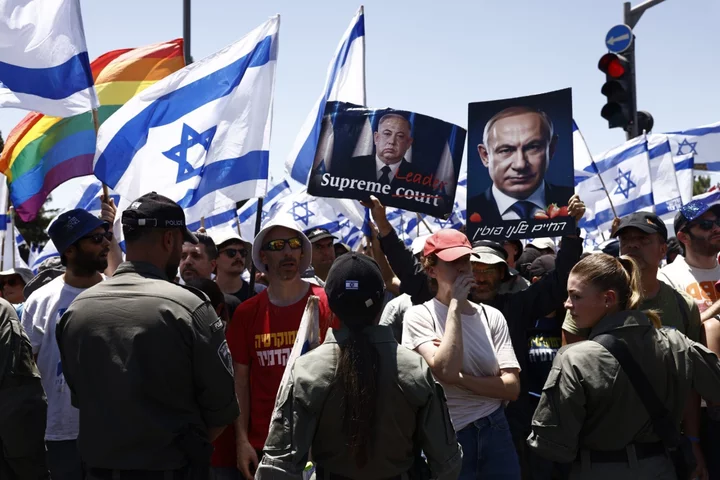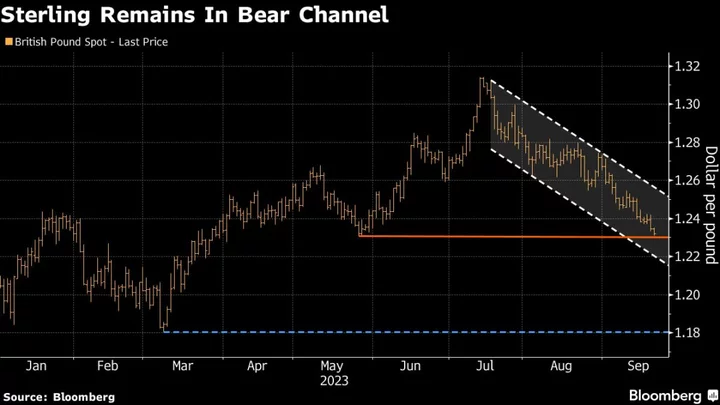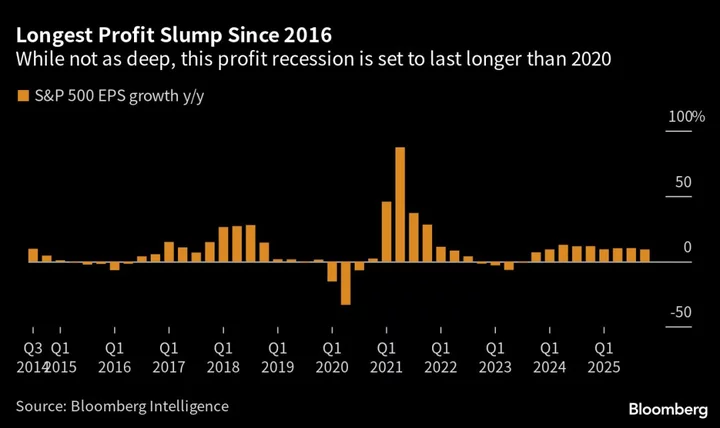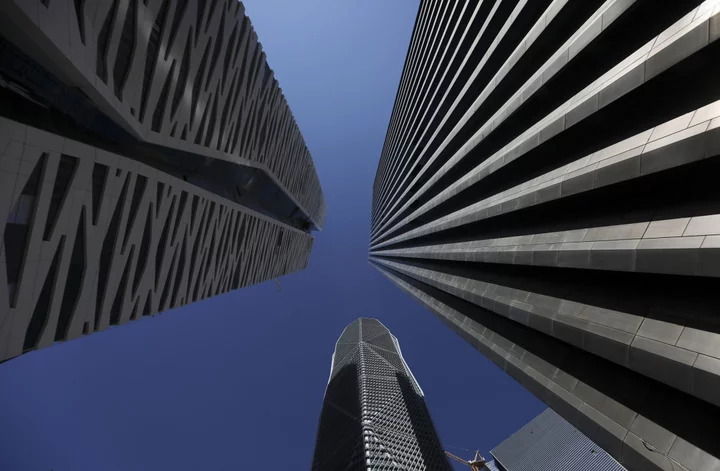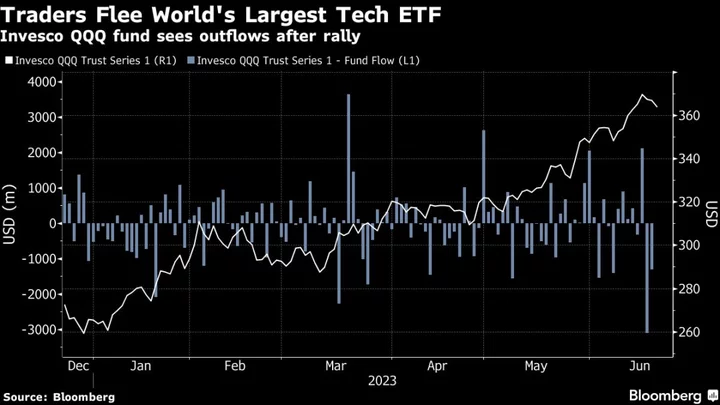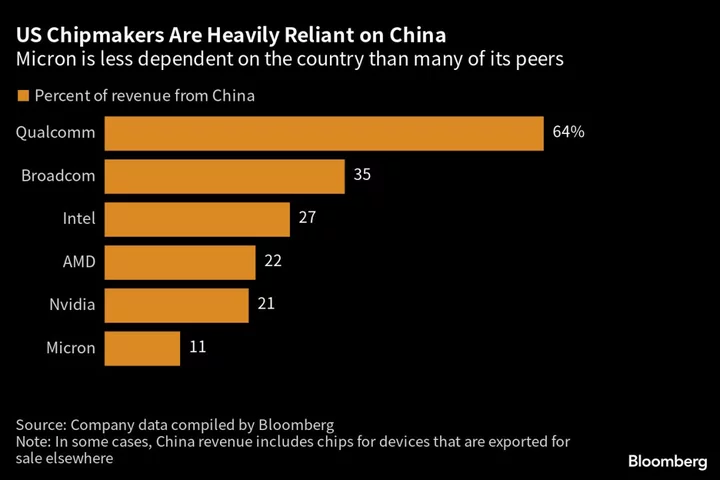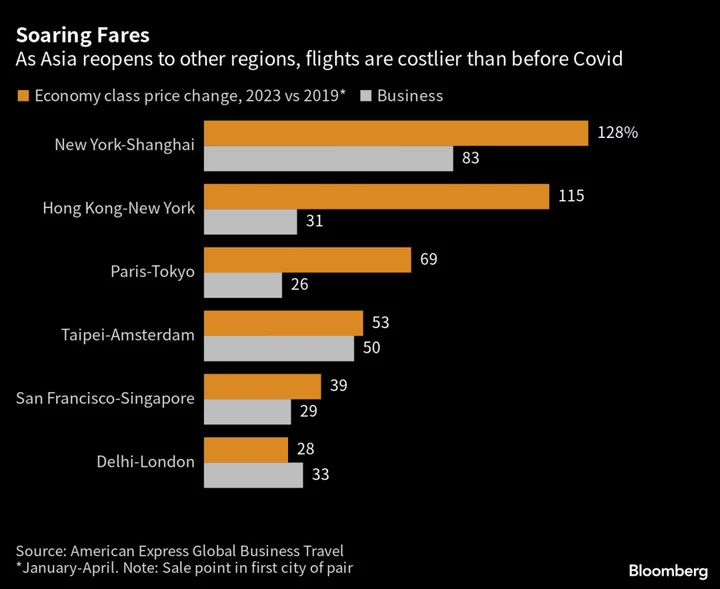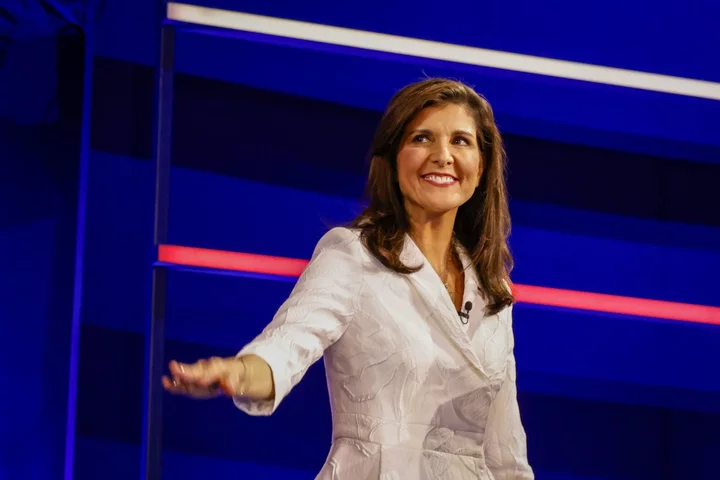Tensions between Gulf states and Israel are rising three years after historic peace deals, slowing down hoped-for investments and setting back US efforts to further integrate the region by including main power Saudi Arabia.
The United Arab Emirates has expressed frustration in high-level contacts with Israel about the outcome of the 2020 Abraham Accords negotiated under the US presidency of Donald Trump, while Bahrain has outlined its disappointment, according to people familiar with the matter. That’s largely due to concerns over Israel’s deteriorating relations with the Palestinians — typified by the recent deadly raid on a refugee camp in the city of Jenin and incendiary comments by some far-right Israeli cabinet members.
The strains are likely to complicate the US’s already challenging goal of deepening relations between Israel and Middle Eastern nations, particularly Saudi Arabia. The White House has been encouraging Saudi Crown Prince Mohammed bin Salman to approach Israel about a deal. The de-facto ruler has so far held off and in March restored diplomatic ties with Israel’s arch-enemy Iran through a China-brokered arrangement.
“This is not part of the vision some in the Abraham Accords had — Israel wanted it as an anti-Iranian axis,” said Aziz Alghashian, a Riyadh-based analyst who studies Saudi policy toward Israel. “The region is moving in a different direction now.”
War of Words That Rocked US-Saudi Ties Cools as Oil Steadies
Publicly, Saudi Arabia has said an independent Palestinian state is a precondition to recognizing Israel as an ally. Privately, it has asked for firm defense guarantees from the US, access to top-notch US weaponry and a green light for its nuclear program including domestic uranium enrichment.
Opinion Backlash
Israeli Prime Minister Benjamin Netanyahu, who has triggered mass protests and unnerved investors with a judicial-overhaul plan, is presiding over his country’s most religious coalition. It backs more Jewish settlements in the occupied West Bank and includes figures such as Finance Minister Bezalel Smotrich, who in March said there is “no such thing as a Palestinian people.”
This has exposed the UAE and Bahrain to a backlash in Arab public opinion that’s been exacerbated by the recent offensive in the West Bank, which Israel said was aimed against militants and meant to destroy their weapons. The UAE condemned the operation, in which 12 Palestinians and one Israeli soldier died, and Smotrich’s comments. The Bahrain government didn’t immediately respond to a request for comment.
Morocco, another country that established ties with Israel around the same time as the UAE and Bahrain, last month postponed an Arab-Israeli meeting to protest against Israel’s plans to expand settlements. The North African kingdom later said Israel now backs its desire to control Western Sahara, a disputed territory, which may improve matters. Following this, Netanyahu’s office said he’s been invited to Morocco.
After months of dragging its feet on a bilateral visit by Netanyahu, the UAE invited the Israeli leader only for an international event — the COP28 climate conference later this year in Dubai. Netanyahu’s moves are also frustrating the US and he has struggled to get an invitation to Washington since he retook power late last year, though President Joe Biden has indicated it will happen at some stage.
Some planned investments by Gulf companies in Israel have stalled. They include a $2 billion acquisition by Abu Dhabi National Oil Co. and BP Plc of half of NewMed Energy, an Israeli natural-gas producer. The deal was provisionally announced in March but has yet to be finalized. It’s been delayed due to Israeli regulators taking time to approve it and should still happen by the end of the year, according to one person familiar with BP and Adnoc’s negotiations.
A consortium of Abu Dhabi firms led by wealth fund ADQ called off a plan to buy a controlling stake in Phoenix Holdings Ltd., an Israeli insurer and asset manager. That was because of rules that would have likely restricted several members in the consortium from making additional investments in Israel, according to a letter they sent to Phoenix, whose shares slumped after the announcement.
Positive Signs
Still, economic ties between Israel and the UAE are expanding.
Bilateral commercial flows, a few tens of millions of dollars before 2020, hit $2.6 billion in 2022, when the UAE became the 16th largest trading partner for Israel. The figure is expected to grow to $3 billion this year, according to Israeli estimates.
More than a million Israelis have visited the UAE since the two countries established relations, though few Emiratis have traveled the other way.
“The Arab countries that signed these deals have a clear economic interest to continue,” said Mairav Zonszein, Israel analyst at the International Crisis Group, which works to prevent conflicts.
Demonstrating the transformation, an Abu Dhabi synagogue opened in February as part of a complex that includes a Catholic church and a mosque. The number of Jews in the UAE has grown 10-fold since 2014 to as many as 7,000, according to the country’s chief rabbi, Levi Duchman.
“This is just the beginning,” he said. “People want to move here because there’s an exceptional opportunity to live in a country where there’s safety and quality of life.”
The synagogue’s opening is “giving a lot of confidence to the community that they are welcome here in the UAE,” said the Israeli ambassador to the UAE, Amir Hayek.
The envoy acknowledged the relationship between the UAE and Israel isn’t always straightforward.
“We are driving in the right direction,” he said in an interview. “Sometimes we need to have detours, but we are in the right direction.”
Israel has said it hopes its economic and business ties with the UAE encourage other Arab countries to recognize the country.
The UAE believes that despite its frustrations, the Abraham Accords have been a success and that having diplomatic relations with Israel can help address its concerns, according to a person familiar with Abu Dhabi’s thinking.
Sore Points
Opinion polls commissioned by the Washington Institute have shown support plunging for the Abraham Accords in the Gulf. In the UAE and Bahrain respectively, according to the latest surveys, just 27% and 20% of respondents view them as positive for the region. That compares to 47% and 45% in 2020. In Saudi Arabia, the proportion has roughly halved to 20%.
In a continuing sore point, the UAE suspended talks on the purchase of advanced F-35 warplanes from the US in late 2021 after Washington insisted it cancel a contract with China’s Huawei for 5G mobile technology. It was promised the weapons when it agreed to establish ties with Israel.
The UAE experience over the Abraham Accords has been watched closely by Saudi Arabia, according to Alghashian, the Saudi analyst. “It realized the limitations of working with Israel,” he said.
--With assistance from Alexander Sazonov, Irina Reznik, Samy Adghirni, Chris Miller and Ben Bartenstein.
Author: Henry Meyer, Fiona MacDonald and Marissa Newman

